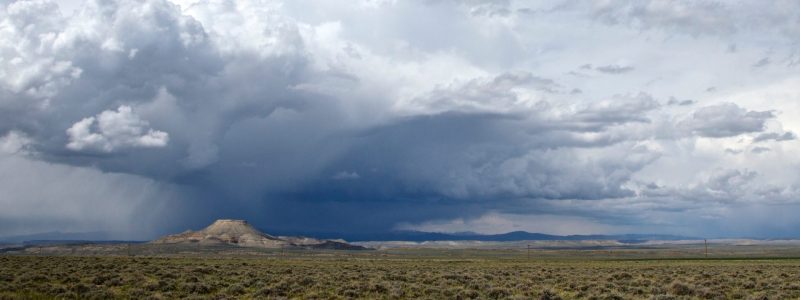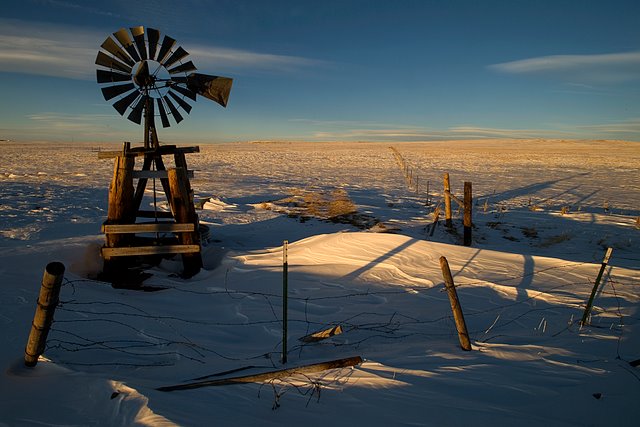
WYOMING IS HOME TO CLEAN, COLD RIVERS AND STREAMS THAT SUPPORT WORLD CLASS NATIVE TROUT FISHERIES.
These waters provide agricultural irrigation, wildlife habitat, support for guiding and outfitting industries, and ensure that residents have safe drinking water and access to year round recreation. That’s why we advocate for Wyoming’s water quality.
TETON COUNTY WASTEWATER
Below the surface of Teton County’s awe-inspiring landscape is the Snake River Aquifer. The aquifer serves as the county’s sole source of drinking water, and is currently under threat from rising levels of harmful nitrate pollutants linked to a high density of septic systems that are not functioning effectively.
In recent months, the Wyoming Outdoor Council has been working to remedy the issues surrounding the county’s water quality; including the current levels of nitrates, insufficient wastewater infrastructure, out-of-date septic system regulations, and a lack of a regional wastewater management plan.
In August 2020, the Teton County Commissioners approved funding to begin crafting a wastewater management plan — which the Outdoor Council advocated for along with our partner organization Protect Our Water Jackson Hole. We submitted detailed recommendations for what should be included in the county’s plan — modernized regulations for small wastewater facilities, septic system inspection requirements when property is bought and sold, incentives for homeowners to connect to existing sewer lines, a management plan to address the high levels of recreational use on rivers and lakes, and a water quality database.
Along with POWJH we also proposed a new rule that would require the Teton County Public Health Department to notify the public when elevated levels of nitrates are detected in any of the county’s 114 public water systems, investigate the source of the pollution, and require remedial action if necessary.
The Wyoming Department of Environmental Quality has opened an investigation into water quality in Hoback Junction, where groundwater already exceeds the Environmental Protection Agency’s maximum allowable nitrate concentration. Residents are exploring options to bring clean drinking water into the community, all of which involve millions of dollars and years of study.
Two streams in developed areas of Jackson Hole, Fish and Flat creeks, were also listed as “impaired” due to levels of E. coli — a bacterial pollutant that comes from human and animal waste — by the Department of Environmental Quality’s in early 2020. In July, the Teton County Board of Health placed signs at public access points warning tubers and anglers about high levels of harmful bacteria in the water and that the water isn’t considered safe for swimming.
Residents of Teton County, and the visitors that provide the backbone of the local economy, all deserve clean drinking water and pristine streams that are free from harmful pollutants. Together with local partners, the Outdoor Council has been working to raise awareness of these issues and encouraging local agencies to take action. We will continue to work toward modernized wastewater regulations, including engaging on revisions to Teton County’s small wastewater facility regulations and advising on a wastewater management plan.
MONETA DIVIDE AND BOYSEN RESERVOIR

In 2019, we spoke out against the Wyoming Department of Environmental Quality’s proposal to allow Aethon Energy to discharge more than 8 million gallons per day of contaminated oil and gas wastewater into creeks which flow into Boysen Reservoir and the Wind and Bighorn rivers. In response to hundreds of citizens who submitted comments and spoke out at public meetings, and concerns from the EPA, the DEQ reversed its position. A revised draft permit released in January would allow Aethon to maintain its current volume of wastewater discharge: about 2 million gallons per day.
The company’s existing permit allows 908 tons per month of salts and other pollutants to enter Boysen and its tributaries, and contains no limits for benzene and other harmful chemicals. The operation has exceeded legal limits for pH, oil and grease, and chlorides. The DEQ made the right decision to cap wastewater discharge at current levels — now, it’s time to address the contamination that’s already taking place.
We’re asking that the DEQ work with Aethon to clean up the damage caused by decades of oil field pollution in these streams and reduce the amount of salts authorized under both the existing and proposed discharge permits. The agency should also implement a one or two-year plan to reduce the concentration of chloride allowed in Badwater Creek. We will continue to analyze the many water quality impacts of this project as the DEQ weighs public input on the revised draft permit.
STANDING UP FOR CITIZEN SCIENCE IN WYOMING
The Outdoor Council recognizes how important, and sometimes fundamental, the data collected by citizens, academic research institutions, and other non-governmental groups can be in making regulatory decisions that protect our health and environmental quality — especially in a time of contracting budgets and limited agency resources.
For this reason in March 2020, WOC along with the US EPA protested the Wyoming Department of Environmental Quality’s proposed changes to impose strict requirements on who can collect water quality data used to support regulatory decisions. You can find our comments below.
The department’s new rules would hamstring the potential benefits of citizen science by requiring that regulatory determinations about water quality standards be made only by data collected by government entities or contractors. The new changes also limit data collection by including highly restrictive educational and training requirements.
We asked that the DEQ remove these arbitrary barriers to citizen science and instead focus on developing and communicating a clear process that maintains the ability of trained citizens to play a meaningful role in shaping water quality decisions in the state.
THE LATEST FIELD NOTES, News & Action

-

A toxic legacy: When “temporary” becomes permanent
I grew up hearing stories. Not just bedtime stories, but also stories shared around the dinner table, passed down from my family. These are tales of mutated animals — creatures with extra legs or two heads. They told us about how the land had been taken, the water contaminated, and how a sickness struck the READ MORE >
-

This plan will protect Laramie’s drinking water. Add your voice today.
The consulting firm hired to update the Casper Aquifer protection plan has recommended new protections for drinking water that the Wyoming Outdoor Council supports. READ MORE >
-

A Message from the Director
Advocating for conservation in Wyoming is demanding work, both for the Wyoming Outdoor Council’s staff and for passionate members like you. Not only are there more issues than we can possibly address as a small organization in a geographically large state, but for people with big hearts and a love for the wild, open spaces READ MORE >
COMMENts, Letters, & Other Documents

OCT. 15, 2018 | COMMENTS
Draft EIS for the Lost Creek Uranium Mine Modification-Expansion
OCT. 12, 2018 | LETTER
Triennial Review of Water Quality Standards
JUL. 18, 2018 | LETTER
Response to Townsend Creek Petition
JUN. 12, 2018 | LETTER
Error in DEQ Categorical Use Attainability Analysis for Recreation—Townsend Creek, Lander, Wyoming
MAR. 15, 2018 | LETTER
True Oil, LLC—Lander Peak Area Exploratory Proposal—BLM Must Address Potential Downhole Impacts to Usable Water in Compliance with Onshore Order No. 2
FEB. 20, 2018 | LETTER
EQC on Water Quality Variances
MAR. 27, 2017 | LETTER
DEQ/WQD regarding granting of variances under the Clean Water Act
SEPT. 16, 2015 | COMMENTS
DEQ/WQD’s Categorical Use Attainability Analysis for Recreation and Final Determination Regarding the Categorical Redesignation of Streams in the State from Primary Contact to Secondary Contact Recreation
Moneta Divide Gas Field Discharge Permit Comments and Memorandums —
AUG. 28, 2019 | LETTER
Wyoming Department of Environmental Quality’s response to “Complaint and Request for Investigation
AUG. 15, 2019 | REQUEST
Investigation of the Moneta Divide Oil and Natural Gas Field
JUL. 3, 2019 | COMMENTS
Comments on Moneta Divide Gas Field Discharge Permit
JUL. 1, 2019 | REVIEW
ERM Water-Quality Modeling Study of Boysen Reservoir
JUN. 27, 2019 | ANALYSIS
Proposed WDEQ Wastewater Discharge Permit for Aethon Energy Operating, LLC
